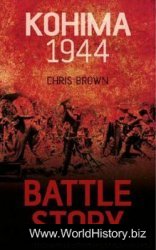We tend to think in this age that the writing of the Constitution and its ratification, the setting up of the new government under the Constitution, the early years of Washington's administration, and indeed the whole series of events in the post-Revolutionary War period had a certain inevitability, that these things were the logical and only possible outcome of the struggle with Great Britain. Along with that idea goes the notion that American history was pretty much ordained to come out as it did, that subsequent events would have taken us along the same general path to the future, that America would become the great 20th-century powerhouse that has dominated world affairs for the past sixty years. In fact, particularly if one accepts the general premise that chaos theory can be applied to historical events, nothing at all was inevitable about what happened from 1775 to 1800.
Chaos theory is a concept that comes from the world of mathematics. When teaching in the classroom, I used to show a clip from the film "Jurassic Park," where Ian, the mathematician played by Jeff Goldblum, describes the concept as being about "the butterfly effect." The essence of the theory is unpredictability; in complex systems a tiny variation in an early stage can have significant and unpredictable events at a later stage. "A butterfly flaps its wings in San Francisco, and three days later you have rain instead of sunshine in New York."History is not a mathematical system, but historians have used a jingle to illustrate the idea: "For want of a nail, a shoe was lost; for want of a shoe, a horse was lost; for want of the horse, the rider was lost; for want of the rider, a message was lost; for want of the message, a battle was lost; for want of the battle, a kingdom was lost, and all for the loss of a horseshoe nail." History is unpredictable. Small, seemingly insignificant events can have great impact later on.
We have previously discussed Washington as "the indispensable man." Let us consider what that might mean. Just suppose that Washington had gone out riding in December of 1788, had gotten wet and chilled and come down with the illness that killed him in 1799?.Suppose that Jefferson had come back from France in time to be elected the first president, or that the honor had gone to John Adams, just back from England, or Madison, the father of the Constitution. All three were great men and made great contributions to our history. Yet Jefferson was a minimalist with respect to government and might have been comfortable taking the presidency down the road toward irrelevancy, to a kind of ceremonial office, following the general path being taken by the British monarchy. Adams could be a cantankerous, passionate political fighter who might not have been able to bring the warring factions of Federalists and Republicans to heel. And Madison, brilliant as he was, might, like Jefferson, have brought so little power to the office of president (though perhaps more from personality and "presence" than by design, as compared with his close friend Jefferson) that the office would have evolved in very different ways.
We also tend to think of our own times as politically troublesome-people get angry over politics and think the worst of our political leaders with a cynicism that present day pundits find disturbing. How wonderful, we think, it must have been to have lived under government conducted by those great founding fathers, who had to have gotten along famously in order to have achieved what they did. Yet Page Smith, a superb historian of that period, has written:
"What is most significant about the election of 1800 is that power was transferred from one party to another under conditions of rivalry so bitter that many thoughtful Americans doubted that the Constitution could survive and that bloodshed could be avoided, whatever the outcome. _ [T]he mere fact that a peaceful 'transmigration'
[transfer] of power took place was, in itself, of enormous significance. The fact was that it was the first time, in modern history certainly, that such an event had taken place. The election of 1800 would thus be notable for that if for no other reason."23
The despair some committed Federalists felt over their loss of political power in 1800 drove some to imagine the worst—that the excesses of the French revolution would be visited upon America.
Looking back with a critical eye we can see that the decade of the 1790s was a time of enormous turmoil, both in America and Europe, and the troubles on the two continents were connected in various, not always obvious ways. Certainly the successful American Revolution had its impact on French thinking before and during their Revolution, and we can but wonder at how differently those two upheavals turned out. Clearly the bloodshed and violence of the French Revolution had a dampening effect on political discord in this country, even though the struggle in Europe from 1792 to 1815 drove the American political parties even farther apart. It is not difficult to imagine the American Revolution turning out just as badly as the French, had it not been for the right people in the right places at the right time. Few nations in history have had such good fortune as ours, and even with good fortune, we might well have lost it all, as we came perilously close to doing on numerous occasions. What, then were the 1790s about?




 World History
World History









